Recent Faculty Publications
The Political Science faculty at the University of Minnesota are leading publishers in their field. They are authors of paradigm-shifting books and deliver signal and enduring contributions to their field. They are published by the most respected presses and contribute to the most widely read journals.
Books
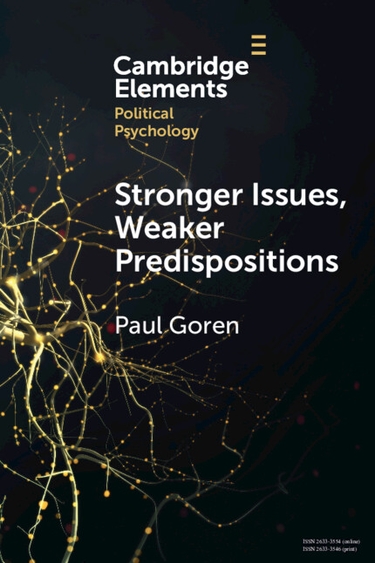
Political psychologists have long theorized that authoritarianism structures the positions people take on cultural issues and their parties ties. Authoritarianism is durable; it resists the influence of other political judgments; and it is very impactful—in a word, it is strong. By contrast, researchers characterize the attitudes most people hold on most issues as unstable and ineffectual—in a word, weak. But what is true of most issues is not true of the issues that have driven America's long running culture war—abortion and gay rights. This Element demonstrates that moral attitudes are stronger than authoritarianism.

Offers a comprehensive history of US military medicine, examines how the US has assessed the costs of war prior to major conflicts, and explicitly connects changes in military medicine to changes in veterans' benefits and the costs of war.
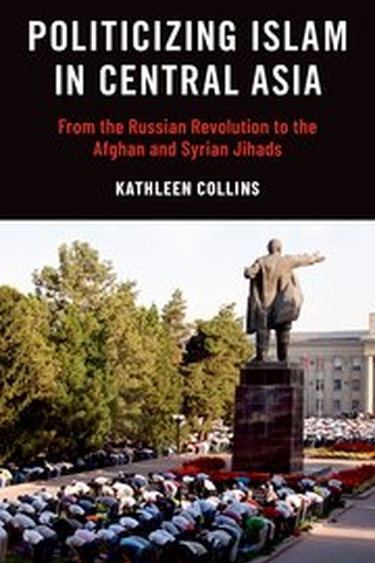
A sweeping history of Islamism in Central Asia from the Russian Revolution to the present through Soviet-era archival documents, oral histories, and a trove of interviews and focus groups.
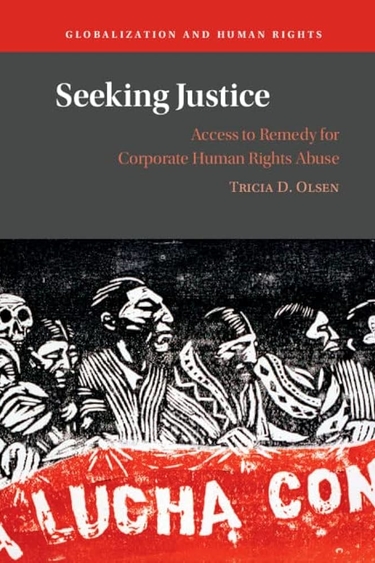
Tricia D. Olsen
This book explores victims' varying experiences in seeking remedy mechanisms for corporate human rights abuse.
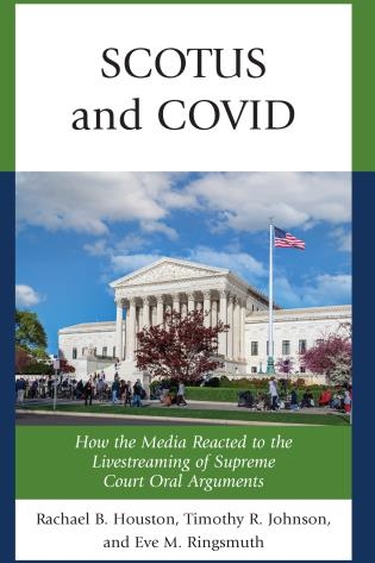
SCOTUS and COVID compares the volume and nature of online print and broadcast television coverage from major media outlets from all U.S. Supreme Court oral argument sessions during the October 2019, 2020, and 2021 Terms.
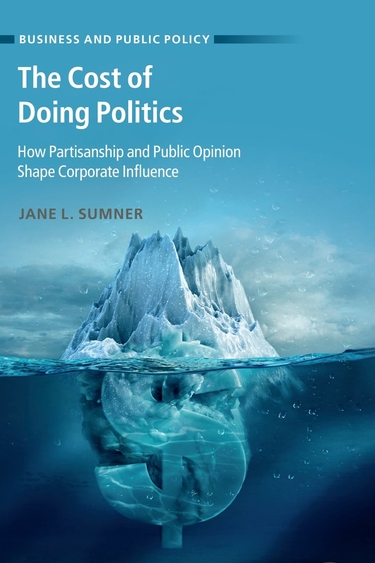
Using quantitative and qualitative evidence, Sumner shows how consumer boycotts can work to dissuade companies from donating money to politicians, but may also encourage companies to attempt influence by largely invisible means.
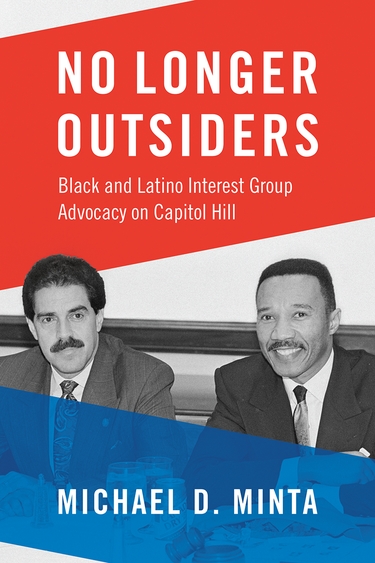
With the rise of Black Lives Matter and immigrant rights protests, critics have questioned whether mainstream black and Latino civil rights organizations such as the NAACP and UnidosUS are in touch with the needs of minorities—especially from younger generations. Though these mainstream groups have relied on insider political tactics, such as lobbying and congressional testimony, to advocate for minority interests, Michael D. Minta argues that these strategies are still effective tools for advocating for progressive changes.
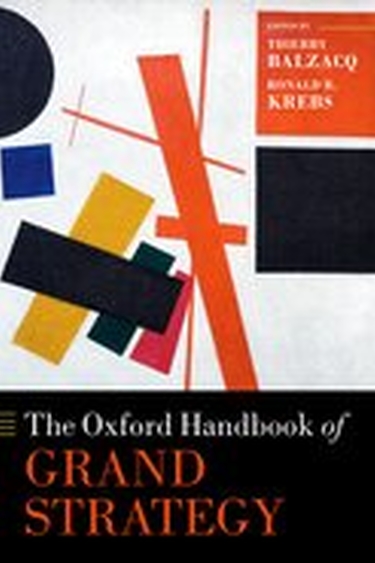
The Oxford Handbook of Grand Strategy addresses the conceptual and historical foundations, production, evolution, and future of grand strategy from a wide range of standpoints. The result is a field-defining, interdisciplinary, and comparative text that will be a key resource for years to come.
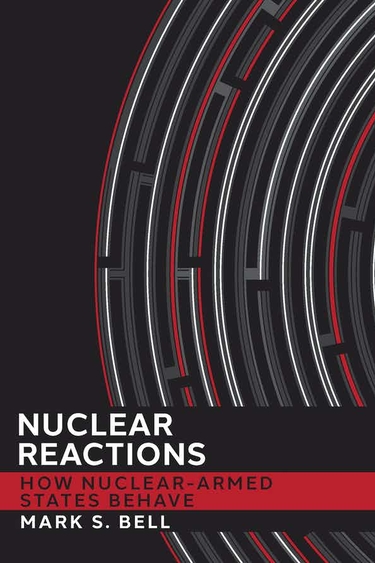
Nuclear Reactions analyzes how nuclear weapons change the calculations states make in their foreign policies, why they do so, and why nuclear weapons have such different effects on the foreign policies of different countries.
Articles and Book Chapters
Jane L. Sumner, Emily M. Farris, Ellen M. Key, "Understanding Variation in Start-Up Funds," The Journal of Politics, June 5, 2024.
Recent research in political science has uncovered and theorized about inequalities within the field. In this article, we explore a lesser publicly discussed difference that likely affects the research process: start-up funding. We surveyed assistant professors in US political science departments about their start-up packages, and we find that characteristics of the institution, prestige of the researcher's PhD alma mater, and having competing offers predict receiving a start-up fund at all and receiving more research money in that start-up fund. The evidence also suggests that women's offers are more sensitive to alma mater prestige, with women from the least prestigious alma maters receiving less funding than men from similarly ranked schools. Notably, publishing more does not seem to help women or men, suggesting that women from low-prestige departments in particular cannot work their way out of this disadvantage.
Howard Lavine, Christopher Sebastian Parker, "Status Threat: The Core of Reactionary Politics," Political Psychology, May 13, 2024.
In recent years, reactionary movements have overtaken the politics of western democracies and developing countries alike. Using the United States as a case in point, we offer a theory of what motivates reactionary movements. While controlling for conventional individual-level accounts of reactionary psychological dispositions, we offer a fresh explanation: status threat. We argue that status threat, a reaction to rapid sociocultural change on the part of dominant groups, pushes some members of these groups into joining and supporting reactionary movements and parties, respectively. We first outline the social psychology of the group (White, Christian, patriarchal, native born, heteronormative) that animates a movement (MAGA) that, in turn, has taken over a party (the GOP). We then test a wide range of hypotheses using two original data sets, finding robust evidence to support our claim: status threat is a major source of the increasing fractionalization of American society and politics, one that threatens American democracy.
Lisa Hilbink, Valentina Salas Ramos, "Citizen Awakening? Exploring Legal Consciousness in a Context of Mass Political Mobilization," Cambridge University Press, May 6, 2024.
Under what conditions will people be inclined to seek remedy when facing rights violations? While some socio-legal scholars have found structural position and/or the ideological macro-context to be the key factors shaping individuals' legal consciousness, often inhibiting their pursuit of remedies, others contend that social experiences and political interventions, including participation in social movements, affect people's willingness to demand redress. What happens, then, when a diffuse popular mobilization challenges a state's fundamental normative framework and demands justice and rights for long-excluded sectors of the population? This article offers empirical and theoretical insights to these debates based on results from a nationally representative survey conducted in Chile at the height of such a mass political mobilization. In this context of widespread citizen engagement and collective claim-making, we find that participation in the protests and self-perceived knowledge of where to turn are statistically related to individuals' professed willingness to pursue a formal remedy across two hypothetical rights violation scenarios. These findings suggest that participation in protests might have an empowerment effect on those who take part, even among disadvantaged groups, opening new avenues for research at the intersection of socio-legal and political participation studies.
James R. Hollyer, Haosen Ge, B. Peter Rosendorff, James Raymond Vreeland, "Measuring Transparency, Again: Updating and Extending the HRV Transparency Index," Political Analysis 22(1):413-434, May 2024.
This paper describes an updated version of the HRV Transparency Index first introduced in Hollyer, Rosendorff and Vreeland (2014). This measure of transparency captures governments' tendency to disclose credible information on the functioning of the economy and society to international organizations—and, by extension, to the general public. It does so by fitting an item response model to a data matrix representing the reporting/missingness of 228 variables drawn from the World Development Indicators data series, released by the World Bank. The current version of the index is not a direct replication of its predecessor, owing to changes in reporting policies at the Bank. It expands the temporal coverage, which previously ended in 2010, to 2015. And it expands the cross-sectional coverage (previously 125 countries from 1980-2010) to include 24 additional countries that enter the dataset in 1993. In addition to describing the new index, we compare it to its predecessor (HRV1) and replicate the results of Hollyer, Rosendorff and Vreeland (2018) using the updated index.
Ronald R. Krebs, Stacie E. Goddard, Christian Kreuder-Sonnen, Berthold Rittberger, "Contestation in a World of Liberal Orders," Global Studies Quarterly, Volume 4, Issue 2, April 27, 2024.
It is widely acknowledged that the core institutions of the Liberal International Order (LIO) have in recent years been subject to increasingly intense contestation. This introductory paper to the special forum on "contestation in a world of liberal orders" makes two main contributions. First, the paper develops a theory of endogenous order contestation. It conceptualizes the LIO as a system of different types of suborders, which vary in the extent to which they reflect and promote liberal values and in the extent to which they are legally institutionalized. The paper explains how these different suborders embedded and institutionalized suborders endogenously generate more intense and order-challenging contestation, while less liberal and less institutionalized orders are amenable to more modest and order-consistent contestation. Second, this paper identifies the specific endogenous mechanisms through which contestation shifts from order-consistent to order-challenging in especially these more liberally embedded and institutionalized suborders. It argues that not only liberal resistance to reform gives rise to order-challenging contestation, but even liberal accommodation and responsiveness can ultimately paralyze and ossify LIO institutions, which in turn lose legitimacy, frustrate would-be reformers, and drive them to order-challenging contestation. The different contributions to this special issue examine our core propositions across a range of economic security, and social-political LIO suborders.
Kevin Wei Luo, "Redistributing Power: Land Reform, Rural Cooptation, and Grassroots Regime Institutions in Authoritarian Taiwan," Comparative Political Studies, 0(0), March 8, 2024.
Can redistributive policies such as land reform help authoritarian regimes coopt rural societies? Given that land reform has the potential to disrupt preexisting sociopolitical orders, this article highlights an unresolved puzzle of how regimes balance between the objectives of expanding its rural coalitional support through transformative redistribution and stabilizing its political control over rural institutions during land reform. Using a novel dataset of Taiwan’s 1950s rural reforms under the Kuomintang authoritarian regime, I find that stronger redistributive effects facilitated cooptation of new land reform beneficiaries through a key institution – the farmers’ association (FA). However, I also find that the restructuring of rank-and-file FA membership was still subject to meddling by the native landlord class. I thus argue that land reform, while allowing regimes to broaden their rural coalitions through socioeconomic redistribution, can also paradoxically compel regimes to concede power during institutional cooptation.
Jane L. Sumner, Sean McCarty, "The Political Consequences of Corporate Donations for Public Service Provision, " Business and Politics, Volume 26, Issue 1, March 4, 2024.
Companies often donate to support public service delivery in US cities. Although this can help alleviate budgetary struggles for those governments, it is unclear what effect it may have on the individual residents receiving the services. In this paper, we argue that people who receive services funded in part by corporate donations are less likely to hold their local governments accountable if the services are of poor quality, because they no longer conceive of themselves as being the sole set of interests the government is catering to. We test our theory using a survey experiment with a realistic fictional government email and find evidence that, when compared with people receiving strictly taxpayer-funded services, people who are told services are provided in part by companies are less likely to take the quality of services into account when they vote.
Mark S. Bell, "Plus ça change, plus c'est la même chose: The Old Lessons about Nuclear Weapons being Re-Observed in Ukraine," H-Diplo/RJISSF Policy Roundtable, February 21, 2024.
The Russian invasion of Ukraine in February 2022 and Ukraine's remarkable resistance to Russian aggression have triggered reams of analysis. Perhaps no aspect of the war in Ukraine has sparked more discussion—particularly among American observers and analysts—than the nuclear dimension of the conflict and the extent to which Russian and American nuclear weapons are affecting the calculations of the various actors involved. The "bomb in the background" of the conflict has never been far from the forefront of analysis. This is obviously reasonable, given the possibility that the conflict might escalate in unpredictable ways and the regular Russian nuclear threats (of varying degrees of explicitness). This essay argues, however, that at least at this point, what is most notable about the role that nuclear weapons appear to be playing in the war in Ukraine is how little new information the war has generated about the role that nuclear weapons play in international politics.
David J. Samuels, Fenando Mello, Cesar Zucco, "Polarization and Perceptions of Status Gain and Loss: The Case of Brazil," SSRN, February 15, 2024.
Brazilian voters are deeply polarized between supporters and opponents of the Partido dos Trabalhadores (Workers' Party -- PT). Although such polarization began to emerge before the PT rose to power in 2003, we suggest that support or opposition to policies that PT governments have enacted since then to ameliorate Brazil's racial, gender, and socio-economic inequalities shape the divide that exists today. These policies, beyond just producing actual winners and losers, have triggered perceptions of status gains and losses. Using an original nationally representative survey tailored to probe status perceptions, we show that Brazilians who perceive status gains for themselves are more likely to oppose the party. We further ties status perceptions to polarization by showing that positive and negative partisanship are tightly linked to attributes about welfare deservingness, racial resentment, and gender hostility, which reflect approval of or hostility towards perceived winners and losers of PT policies. Our findings provide novel insight into the importance of perceptions of status gain as well as loss as sources of partisan polarization in the Brazilian case, and contribute to our general understanding of the politics of resentment.
Christopher M. Federico, Nicolas Campos, "A New Measure of Affective Polarization," OSF, January 31, 2024.
Affective polarization has emerged as an important construct in the literature on partisan animosity. However, most efforts to measure it have relied on simple pre-existing indices, potentially missing the complexity of affective polarization. In this article, we address these concerns by reconceptualizing and deriving a new measure of affective polarization. Drawing on the notion of political sectarianism from Finkel et al. (2020) and several other lines of research in political behavior and social psychology, we develop and validate a novel multidimensional measure of affective polarization consisting of three parts: othering, aversion, and moralization. Our analyses ultimately yield a valid and reliable nine-item measure. The full scale and its subdimensions broadly correlate with various measures of political identity, anti-democratic attitudes, and political violence. Importantly, we also find that the three subdimensions have different patterns of correlation with criterion variables, suggesting that othering, aversion, and moralization are distinct components of affective polarization.
Nancy Luxon,"The Archives of Colonial Trauma: The Politics and Psychiatry in North Africa," PS: Political Science & Politics, December 29, 2023.
What does it mean to analyze "the history of colonial trauma" and what type of archival "evidence" establishes this narrative? Many progressives have embraced the more capacious language of trauma to encapsulate a wider range of harms than that captured by "assault" or "violence." Scholars have used different concepts to discuss the genealogical complexities and blockages of specifically colonial trauma, from figurations of counter-modernity (Chakrabarty 2001; Scott 2004) to colonial aphasia (Stoler 2016), to empires of trauma (Fassin 2009). As anthropologist Tanya Luhrman (2010) noted, trauma is the great psychiatric narrative of the past century. The concept of trauma has been used to bring together victims of events as diverse as earthquakes, genocide, civil war, colonialism, and mass shootings—all with reference to the same diagnostic category. The discovery of trauma as a narrative can be told in two different ways. One account might emphasize the suffering and need for recognition and treatment of those who alternately are figured as "patients" or "victims." The relation between event and injury in this narrative is taken to be real and capable of being established so as to attest to injury. This narrative might emphasize recurrence and repetition (Caruth 2016), the dilemmas of witnessing (Felman and Laub 1991), or the clinical "best practices" for transcultural psychiatry (Bhattacharya, Cross, and Bhugra 2010); it also might reflect historically on disciplinary institutions and their limits (Keller 2007). The plot of such a trauma narrative unfolds through efforts to document it, classify it, and offer consolation—a plot in which forward action is impeded by the paucity of evidence or the blindspots of clinicians (Brooks 1992; Goldstein 2001).
David J. Samuels, Fernando Mello, Cesar Zucco, "Partisan Stereotyping and Polarization in Brazil," Cambridge University Press, December 15, 2023.
In recent decades, Brazilian voters have grown polarized between supporters of the Partido dos Trabalhadores (Workers' Party, PT), known as petistas, and its opponents, known as antipetistas. What explains this animosity? One potential source of polarization is partisan stereotyping, a tendency for partisans to misperceive the social composition of both their own side's bases of support as well as their opponents'. We show that most Brazilians overestimate the extent to which petistas and antipetistas belong to party-stereotypical groups such as Afro-Brazilians, evangelical Christians, or poor or rich people. We then show that stereotyping is associated with polarization: the greater the bias in perceived partisan group composition, the greater the perceptions of partisan political extremism and feelings of social distance to the partisan out-group.
Jane L. Sumner, Ezgi Özçelik, "Research Design and Personal Identity," Oxford Handbook of Engaged Methodological Pluralism in Political Science, Volume 1, October 23, 2023.
The core components of research design, as set out by King, Keohane, and Verba (1994), have remained largely unchanged for two decades. Yet in recent years more attention has been paid to the ways that individual identity shapes the steps of research design and therefore the final research product. This chapter discusses the ways this occurs and provides some explanations for why they occur. It concludes by discussing why failing to recognize and accommodate how individual identity shapes the research design process–in other words, enforcing homogeneity–can be bad for researchers as well as for political science as a whole.
Mark S. Bell, Kelso R. Anderson, Cheyenne Tretter, "The End of Inhibition? Why US Nonproliferation Policy Is Becoming Less Effective," The Washington Quarterly, Volume 46, October 13, 2023.
For over seven decades, preventing the spread of nuclear weapons has been central to US foreign policy. The United States has wielded its power to persuade and coerce adversaries as well as allies out of acquiring them. It has built and sustained international institutions which make it harder for states to acquire nuclear weapons and has sought to encourage norms of nuclear restraint and nonproliferation. And when the United States failed to prevent countries from acquiring nuclear weapons, it worked to inhibit the growth of their arsenals or keep them opaque. These policies have contributed to a slow rate of proliferation since 1945.
But the foundations of this policy and its effectiveness—international, domestic, and normative—are eroding. A worsening international balance of power, domestic political polarization, and reduced US legitimacy mean that US nonproliferation policy is becoming less effective over time. US policymakers may continue to dedicate resources to preventing proliferation, but US nonproliferation policies will be less potent in influencing the nuclear calculations of other states. The United States will be less able to make and uphold nonproliferation deals with potential proliferants—and will have to “pay more” when it does—and the US-led nuclear order, and the institutions and norms embedded within it, will be less attractive for both allies and adversaries of the United States.
We make this argument in three parts. First, we outline the contours of US nonproliferation policy and its historical successes. Second, we lay out the factors that have underpinned the effectiveness of US nonproliferation policy. We show that each of these factors is declining and that these declines have contributed to recent nonproliferation struggles. Third, we lay out the implications of our argument.
Anuja Bose, "Vigilance as a Practice of Postcolonial Freedom," Cambridge University Press, September 25, 2023.
The notion that popular vigilance is central to safe-guarding democratic freedoms is a key pillar of republican political thought. Yet, this conception does not translate well to postcolonial contexts without some reconceptualization. In this article, I take up the ways in which two African statesmen and political theorists, Julius Nyerere and Thomas Sankara, reconceptualize the practice of vigilance in the postcolonial context. Both theorists demonstrate that the collective exercise of vigilance is a qualitatively different political practice in the postcolonial context because citizens must simultaneously target internal domination from elites and external domination from international institutions and former colonial powers. Furthermore, they underscore that a shared political vision in the form of a national ethic is crucial for generating and guiding mass practices of vigilance. Doing so, Nyerere and Sankara articulate a distinct tradition of postcolonial republicanism that better conceptualizes the challenges of stabilizing state-society relations in postcolonial Africa.
Christopher M. Federico, Ariel Malka, "The Psychological and Social Foundations of Ideological Belief Systems," The Oxford Handbook of Political Psychology, 3rd edition, September 18, 2023.
Defining ideology as a system of functionally interconnected political attitudes and beliefs, we review evidence concerning (1) the nature and origins of ideology in mass publics and (2) the social and interpersonal nature of the motives underlying ideological coherence. One key conclusion that we draw is that the links between psychological attributes and subsets of ideological attitudes sometimes appear to be organic and functional but other times appear to be conditional on how the relevant attitudes are packaged with other attitudes into socially constructed ideologies. A second key conclusion is that the social motives that induce citizens to pull diverse attitudes into ideological alignment may also, in polarized contexts, induce people to adopt non-political identities and self-perceptions that are congruent with ideological stereotypes. We recommend a focus on the implications of these processes for polarization and democratic stability.
C. Daniel Myers, "Issues, Groups, or Idiots? Comparing Theories of Partisan Stereotypes," Public Opinion Quarterly, Volume 87, Issue 3, September 15, 2023.
When individuals picture the two parties, what do they think of? Given the dominant understanding of partisanship as a social identity, understanding the content of these mental images—individuals' stereotypes of the two parties—is essential, as stereotypes play an important role in how identity affects attitudes and behaviors, perceptions of others, and inter-group relations. The existing literature offers three answers to this question: one that claims that people picture the two parties in terms of their constituent social groups, a second that claims that people picture the two parties in terms of policy positions, and a third that claims that people view the two parties in terms of individual traits they associate with partisans. While not mutually exclusive, these theories have different implications for the effects of partisanship and the roots of partisan animosity. This paper adjudicates between these theories by employing a new method that measures stereotype content at the collective and individual level using a conjoint experiment. An important advantage of the conjoint measure is that it allows for the direct comparison of the importance of different attributes, and different kinds of attributes, to the stereotype. Using a pre-registered 2.909-person survey, I evaluate the relative importance of issues, groups, and traits to stereotypes of partisans. I find strong evidence that issue positions and ideological labels are central elements of partisan stereotypes. I also find that individuals who hold issue- or ideology-based stereotypes are more affectively polarized than those whose stereotypes are rooted in groups or traits.
C. Daniel Myers, Kirill Zhirkov, Kristin Lunz Trujillo, "Measuring Support for Welfare Policies: Implications for the Effects of Race and Deservingness Stereotypes," Cambridge University Press, September 5, 2023.
What are the relative contributions of stereotypes about the race and deservingness of welfare recipients to Americans’ opinions on welfare? A recent study employing a conjoint-experimental method finds that Americans’ stereotypes of welfare recipients as undeserving drive negative attitudes toward welfare, while stereotypes of welfare recipients as Black have little effect. However, this finding may be produced by the measure of welfare attitudes that includes questions implicating deservingness. We implement a conceptual replication of that study using different measures of welfare policy opinions that directly ask respondents about spending, both on welfare generally and on specific welfare programs. We show that when support for welfare is measured using the spending questions, stereotypes about race are significantly associated with opposition to welfare. These results have important implications for the debate on Americans’ opposition to welfare programs, as well as for the measurement of policy opinions in surveys.
C. Daniel Myers, Ethan C. Busby, Adam J. Howat, "Changing Stereotypes of Partisans in the Trump Era," Cambridge University Press, August 24, 2023.
Stereotypes of the two parties play an important role in political cognition, and a range of recent studies have examined the content and effects of partisan stereotypes. However, little work has studied change in partisan stereotypes over time. We address this question by comparing data on stereotypes of partisans collected before and after the Trump presidency, a time when we might expect individuals' images of the two parties to undergo significant change. Using a structural topic model, we compare responses to open-ended questions asking respondents to list words describing members of the two parties from 2016 and 2021. We find that partisan stereotypes in the 2021 sample are less group- and issue-based and focused more on personal traits. These results suggest that, during the Trump era, members of the mass public came to see the parties in more personalized, character-focused terms, potentially contributing to affective polarization.